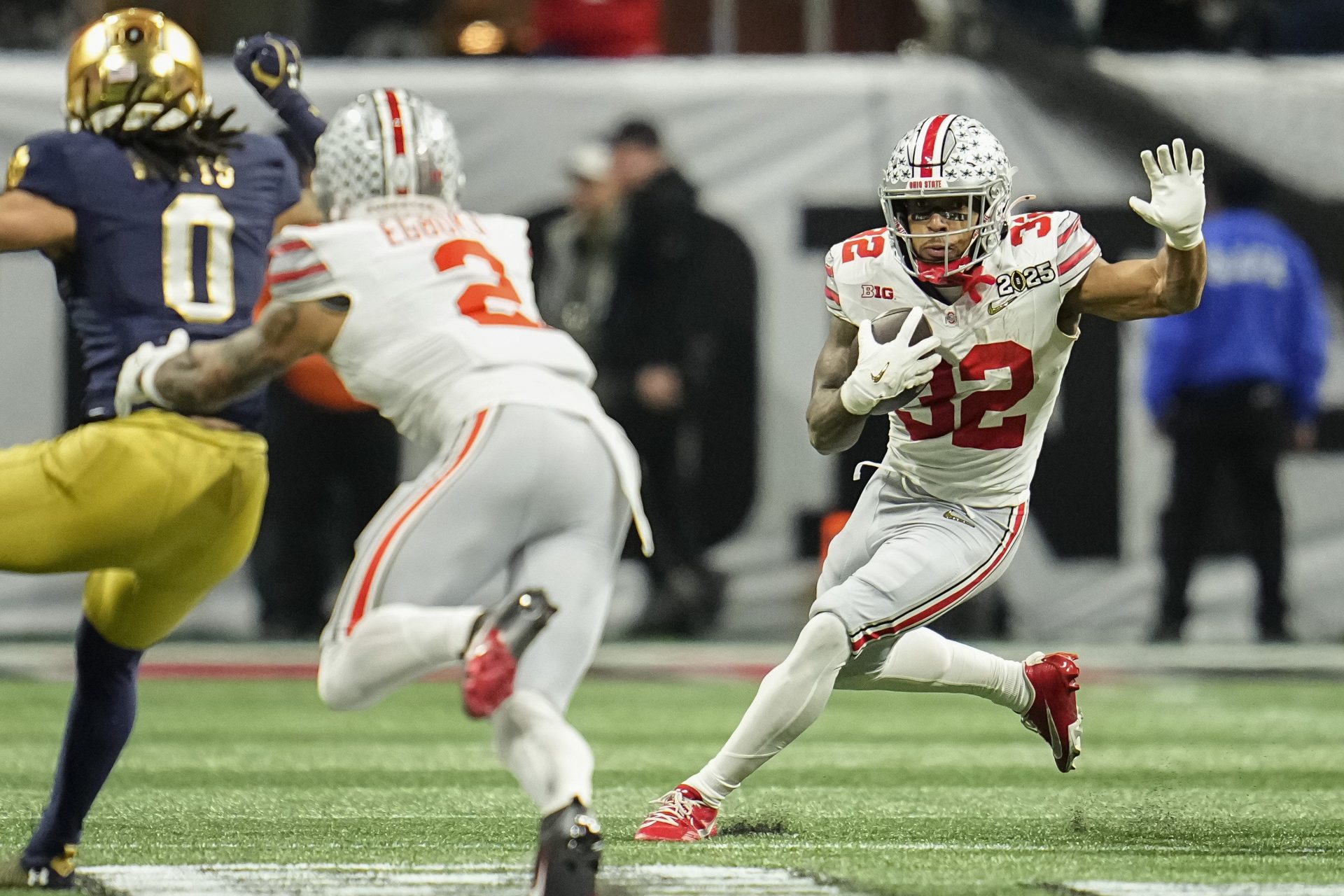On3 analyst and podcast host Andy Staples believes the powers that be — whether it be the College Football Playoff committee, NCAA, or whatever governing body — have figured out a way to keep a SEC-Big 10 superleague from forming in college football. However, it could backfire just as easily.
Andy Staples Explains How College Football Can Be Saved From Becoming a Superleague
Texas Tech board chair Cody Campbell has his thoughts on how to stabilize college football. As a reported co-chair of a presidential commission, he might be able to put those ideas into action. Steples and co-host Ari Wasserman discussed Campbell’s comments.
“He’s one of the people, along with Nick Saban, who’s been tapped for this committee,” Staples said Tuesday on “Andy & Ari On3.” “Now, he can’t talk about this stuff yet, because they haven’t really filled out the committee. But he’s written some things that kind of tell you where he’s headed, what his thinking is.
Staples continued, “He said one of the things he’d like to do is take the 1961 Sports Broadcasting Act, which allows the NFL and NBA and [MLB], it allows their teams to get together and act as a single seller of television rights. So, this way, the UFL can’t sue the Cowboys and the 49ers and Packers and say, ‘You’re acting as a cartel.'”
Staples said Campbell is part of a group that wants to add college sports under that umbrella, “essentially as another professional sport, which it is.”
“The thought is there would be so much more money available from all of the leagues being able to get together and sell their rights as one – which is true, TV people have been saying this for years — that you might be able to convince the Big Ten and the SEC to not do a superleague.”
Staples doesn’t believe such a setup, with college football’s powers in an exclusive club, would be interesting, nor beneficial to the sport. Television executives, on the other hand, would be thrilled with that format, mainly due to the ratings it would draw.
RELATED: College Football Analysts Predict Domino Effect-Like Trend for Recruiting Elite Players
“As asking Congress for stuff goes, I feel like this is something Congress would be more willing to do than just saying, ‘You can blatantly violate the Sherman [Antitrust] Act and cap players’ earnings,'” Staples said. “Because I don’t think they’re gonna get that, no matter how bad they want it. But this, they might be able to get.”
Staples added that it could be a double-edged sword, and doing it wrong could make it easier for the superleague to form.
“The thing I want is continuation of broad college football, lots of teams, lots of interest, you know, nationwide,” Staples said. “But, if they do it wrong, it’s the top 36 or 48 or whatever it is, and I don’t want that.”
While college football isn’t there yet, it could be a matter of time. Since the College Football Playoff’s inception, we’ve seen it grow from four to 12 teams and now seemingly to 16 with automatic bids. While it may not be a Superleague now, who knows what could happen as the sport continues to evolve.
College Sports Network has you covered with the latest news, analysis, insights, and trending stories in college football, men’s college basketball, women’s college basketball, and college baseball!


